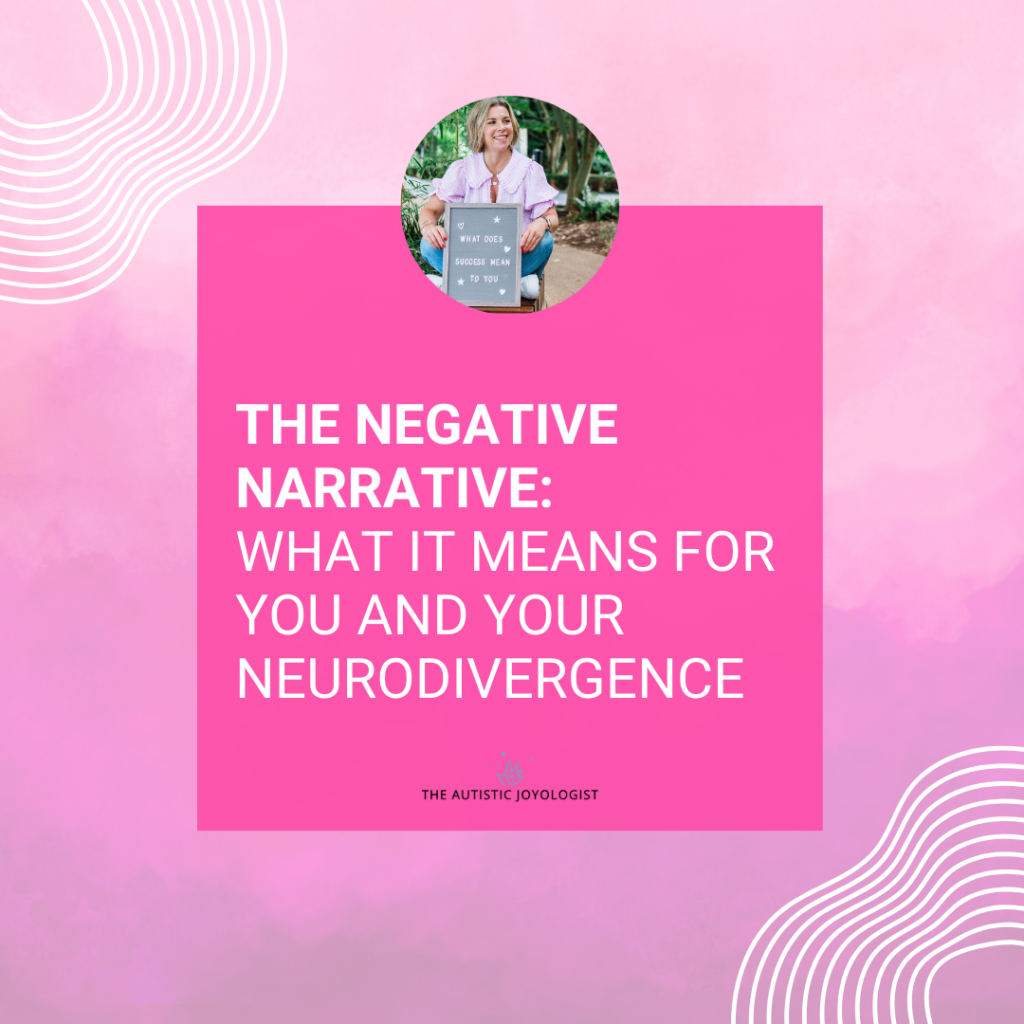
Have you heard of the ‘negative narrative’?
It’s something I’ve explored quite a bit…
Research suggests that by the ages of seven to eight, children with ADHD already have low self-esteem and self-worth, because they’ve been told so many times the things they’re not good at (or not good enough at).
And by the age of 12, kids who are ADHD receive 20,000 more pieces of negative feedback than those without.
As we grow up, we’re repeatedly shown and told the areas we’re perceived to be failing in.
I was diagnosed autistic and ADHD in my mid-40s, meaning I had over four decades of believing I wasn’t good enough and was failing in multiple areas.
Alarming, isn’t it?
It can be incredibly difficult to focus on our strengths and the areas we excel in, so that’s why I’m exploring the negative narrative and encouraging you to take my Neurodivergent Skills Mastery course.
Across 22 lessons, you’ll understand and learn to harness your unique skill, helping you manage challenges you may encounter to create a calmer, happier and more successful life for yourself.
I’m not going to lie, you may find the course difficult.
Why?
Because you’re hyper-aware of what you perceive are your failings and feel you’re just not good enough.
It can be really hard to flip that narrative and acknowledge you’re weaker in some areas but awesome in others, whether it’s creative problem-solving, writing, sharing and telling stories, building empathy…
For example, I have incredible intuition, but historically, didn’t focus on it, because everything was about my perceived shortcomings and failings.
It’s unbelievably toxic to grow up being shown the sides of yourself that other people tell you aren’t good enough.
You internalise that narrative and become your own worst critic.
Does that resonate?
I really encourage you to flip the narrative.
We can’t undo what’s happened in the past, but we can choose the narrative we move forward with.
So, I invite you to focus on the high spikes in your skill set – things you excel at and love, that come easily and bring you joy.
Use them as much as you possibly can, because that’s where you’ll build your confidence and see the impact of showcasing the things you’re incredible at.
You may notice you’ve suffocated amazing skills because you weren’t in the right environment. Or maybe you were afraid of sharing your out-of-the-box thinking or creative problem-solving in case others judged you.
I certainly experienced that in my corporate life.
I suffocated my creativity because I worked for an organisation that celebrated sameness.
But I wasn’t the same.
I internalised that as not being good enough, when actually, it’s now my strength as an entrepreneur.
In fact, something I’ve come to realise about my own autism and ADHD is I’m full of beautiful paradoxes and contradictions.
For every struggle, on the other side is usually something I excel at.
For instance, I find it incredibly difficult to focus when it’s something I’m not particularly interested in.
I can’t filter information to stay engaged.
On the positive side, I can hyper-focus and achieve a week’s worth of work in an afternoon. It feels like I’m wired up to the
electric grid – energy flows through me and the deliverables I can achieve are phenomenal.
My narrative could be: “I really struggle with my focus.”
On the flip side, my hyper-focus enables me to achieve great things.
When I’m in a negative and self-criticising mindset and thinking: “You’re not very good at that,” I stop and consider the
contradiction.
What’s the positive from this particular issue?
You may veer towards reversing that: for everything you’re amazing at you might find a variation where you struggle.
I’d encourage you to avoid that line of thinking.
I’m a real believer in being strengths-focused. I have no interest in living my life based on the negative narrative anymore, so whenever I feel self-criticism coming in, I look for the positive.
I encourage you to do the same – it’s a game-changer.
It can be extremely complex to unpick a lifetime of focusing on the struggles, but you get to choose your mindset and how you move forward.
And remember, you’re not supposed to be good at everything!
As a neurodiverse woman, if you’d like to understand and master your unique skill set, do check out my Neurodivergent
Nikki x